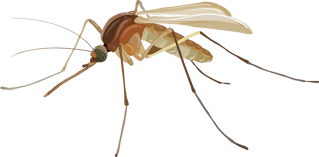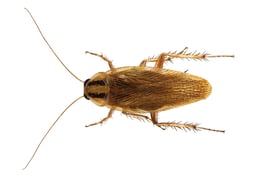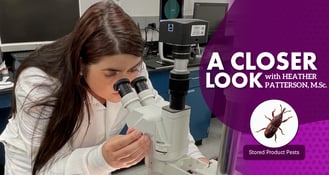A Closer Look with Heather Patterson, Technical Services Manager
Mosquitoes are public health pests because they can transmit a variety of disease-causing pathogens to humans and animals through their bites. Some of the common pathogens spread by mosquitoes include West Nile virus, Zika virus, Dengue viruses, and the parasites that cause malaria. In addition to the direct health effects of mosquito-borne diseases, mosquito disease outbreaks can also cause economic losses due to decreased productivity, increased healthcare costs, and decreased tourism in affected areas. Here we share some important tips and interesting facts you should know about mosquitoes:
Use EPA-registered insect repellents

Remember to protect yourself from mosquito bites by using insect repellents. The CDC recommends the use of EPA-registered insect repellents because they are proven safe and effective. Some insect repellent active ingredients that are registered by the EPA for on-skin applications include DEET, picaridin, IR 3535, and oil of lemon eucalyptus.
Most mosquitoes aren’t a problem for people
Of the approximately 200 mosquito species in the United States, most of them are not vectoring human pathogens. Since most people can’t tell which mosquitoes may or may not be vectoring pathogens, it’s always best to protect ourselves from their bites (see tip #1!).
Some mosquitoes lay very hardy eggsSome species, like the Asian tiger mosquito (Aedes albopictus) and the yellow fever mosquito (Aedes aegypti), have drought- and desiccation-resistant eggs. Studies have shown that eggs of these mosquitoes can withstand dry environments for long periods of time, with some eggs surviving ≥1 year under such conditions.
Malaria: one of the oldest and deadliest diseases spread by mosquitoes
The World Health Organization estimated that in 2021 more than 600,000 people worldwide died from malaria. According to a 2020 publication in Prescriber, a leading UK journal for healthcare professionals, humans have been battling this deadly disease for millions of years.
Here’s why you are attractive to mosquitoes
There are several physical and chemical cues that female mosquitoes use to find their host. From the body heat we emit, to the carbon dioxide we exhale, to the body odors we produce, we lead hungry mosquitoes right to us without even knowing it.
References:
Caminade, C., Medlock, J. M., Ducheyne, E., McIntyre, K. M., Leach, S., Baylis, M., & Morse, A. P. 2012. Suitability of European climate for the Asian tiger mosquito Aedes albopictus: recent trends and future scenarios. Journal of The Royal Society Interface, 9(75), 2708–2717. doi:10.1098/rsif.2012.0138
Coutinho-Abreu, I.V., Riffell, J.A., & Akbari, O.S. 2022. Human attractive cues and mosquito host-seeking behavior. Trends in Parasitology. 38(3): 246-264. doi:10.1016/j.pt.2021.09.012.
Duvall, L. B. 2019. Mosquito Host-Seeking Regulation: Targets for Behavioral Control. Trends in Parasitology. doi:10.1016/j.pt.2019.06.010.
Faull, K.J. and Williams, C.R. 2015. Intraspecific variation in desiccation survival time of Aedes aegypti (L.) mosquito eggs of Australian origin. Journal of Vector Ecology, 40: 292-300. https://doi.org/10.1111/jvec.12167
Greener, M. 2020. Defeating malaria: new weapons against one of our deadliest foes. Prescriber. 31: 18-22. https://doi.org/10.1002/psb.1856.
Ricciuti, E. 2023. Another Non-Native Mosquito Species Adds to Growing List in Florida. Entomology Today. https://entomologytoday.org/2023/04/11/culex-lactatornon-native-mosquito-species-florida/.
World Health Organization. World Malaria Report 2022. ISBN 978-92-4-006489-8 (electronic version).

